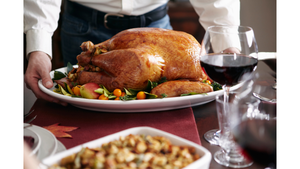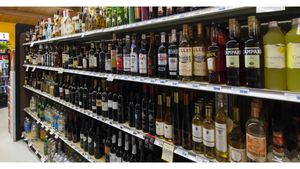HARRIS TEETER'S POST-9/11 SECURITY CASTS WIDE NET
CHICAGO -- When Harris Teeter checked the names of all 14,000 employees against the Federal Bureau of Investigation's "Be On the Look Out" list, two names came back as potential matches. In the post-9/11 world, the connection was a real eye-opener."When we checked them out and investigated further, we found they were not the individuals [being sought]," said Dan Faketty, vice president, loss prevention,
May 20, 2002
ROBERT VOSBURGH
CHICAGO -- When Harris Teeter checked the names of all 14,000 employees against the Federal Bureau of Investigation's "Be On the Look Out" list, two names came back as potential matches. In the post-9/11 world, the connection was a real eye-opener.
"When we checked them out and investigated further, we found they were not the individuals [being sought]," said Dan Faketty, vice president, loss prevention, for the Matthews, S.C.-based retailer. "They simply had the exact same first name, middle initial and last name."
Nevertheless, the incident demonstrates the need for supermarkets to maintain their vigilance in all areas of operations, from personnel to facilities, Faketty said. He participated in a panel discussion on food security during the 2002 FMI show.
Today, the retailer is outfitting stores with closed-circuit digital television systems; upgrading security at stores, distribution centers and dairy facilities; and closely monitoring delivery people and anyone else in an outside service position.
"A lot of [our actions] are not a direct result of 9/11," he said. "But our organization is one that recognized the fact that we needed to beef up our physical security tools and measures in our stores, distribution facilities and dairies," Faketty said.
In the scrambled, confusing days following the terrorist attacks, the Food Marketing Institute and loss-prevention executives from member companies convened to discuss security issues and safety priorities. Within a month, the group issued recommendations for stores, distribution centers and dairy facilities, among others.
Like other retailers, Harris Teeter had many measures already in place prior to 9/11 for different reasons, such as shrink reduction. However, those systems and procedures took on new importance in the days and weeks following the attacks.
"We had been doing criminal background checks on all of our associates, in our stores and our distribution centers," Faketty said. "We were not doing them at our dairy facilities, at least initially; but post-9/11 we actually implemented criminal background checks in our dairy facilities as well."
Publication of the guidelines made it easy for operators to quickly implement stopgap measures while larger needs were reviewed. In many cases, the FMI recommendations were adopted as policy, Faketty said.
"Essentially, we went into our facilities and we assessed all the FMI recommendations, compared them to what we were currently doing and then made decisions on whether or not we were going to execute [the updated suggestions]."
As management took a look at all 148 stores and assessed them, they discovered potential trouble spots in areas where equipment or fixtures could be sabotaged. Up until the terrorist attacks, the retailer's dairy-processing operation had largely been operating free of major security measures.
Harris Teeter ordered lighting upgrades of 3 and 10 candlepower, in accordance with the FMI recommendations, for the trailer yard and gate area, respectively. Installation of closed-circuit digital television was completed. And, the retailer notified outside suppliers of new procedures to verify and document incoming deliveries. Checking driver identification caused some friction, at least initially, conceded Faketty.
"The way we got out in front of this is [we sent] every company we did business with a letter in advance notifying them that on a certain date we'd go live checking IDs. We also posted it 30 days in advance at each of our [facility] entrance points, reminding them they were were going to implement this," he said, adding that Harris Teeter has taken the procedure one step further.
"I'm not recommending this, and this was not part of the FMI recommendations. This is just something Harris Teeter elected to do," he continued. "We literally put photocopy machines into the guard shacks, so not only are we taking the driver's license from individuals, but we're actually photocopying them. Obviously, as a business, it is our responsibility to secure that information, and we do have a process in place to secure it and then limit access. And this was all done under the premise that, in the event an incident or a problem occurred at one of our facilities, we would be able to go back and not only find out who came into the facility, but have a photo ID of who that individual was."
The precautions extend to the perimeter of the properties, too, where fence lines were increased to 7 feet, and a turnstile gate with card-swipe entry was added.
For trucks, there was new emphasis on locking trailers and placing electronic security devices on them that would indicate if the seal was broken.
"What was almost shocking to me was the number of companies that don't lock their trailers and ultimately use seal systems," said Faketty. "Or, of those that do have systems, don't have a managed process to track if seals are broken."
Careful review of stores revealed they, too, could be vulnerable.
For example, a number of the units did not have alarm contacts on the roof hatches, even though they provided access to compressor rooms. Contractors working on rooftop HVAC systems were also not required to show identification or sign in and out.
"We require contractors to sign in and produce identification, any time they're in our stores now. That's a direct result of 9/11," Faketty said.
In-store, a single person is now assigned to open all mail and is trained to look for suspicious letters or packages. And any customer returning a product to the store for exchange or refund must present identification.
One of the biggest changes has been the pace and scope of installing closed-circuit digital television systems in key areas, which will eventually include perishables. Faketty noted the retailer had been placing CCTV well before 9/11 to address a separate issue -- inventory-shortage reduction. But the network now plays the additional role of monitoring for security-related breaches.
Operationally, the state-of-the-art technology is an advance over videotape in that it provides stable images, makes excellent photos and transmits well.
"Out of the 148 stores we have right now, we are up to 40 stores where we've installed digital, with another 40 stores ready to launch within 30 days," Faketty said.
Some stores have as many as 32 cameras mounted in critical areas, such as the front door and over each checkout. Customers can see the difference as well, since large public-view monitors are suspended from the ceiling with signage that reads: "Because we care. Closed-circuit television has been installed to enhance the security and safety of our associates and customers."
Background tests of potential employees are also an important component of Harris Teeter's security strategy. Faketty said that a pre-employment questionnaire tested in 30 stores revealed that not all of the 924 applicants interviewed and thought qualified, based on traditional interviews and reference checks, were entitled to work for the retailer.
The test results stated that 71% could be recommended, and 7% qualified. Yet 22% were not recommended for various reasons, he said.
"Sixty-nine of the applicants admitted [on the exam] to stealing merchandise totaling over $7,000; 38 of them admitted theft of money totaling $4,000; 28 admitted to taking something without paying for it; 17 admitted to committing a crime; and 15 actually admitted to being convicted of a crime," said Faketty.
About the Author
You May Also Like




